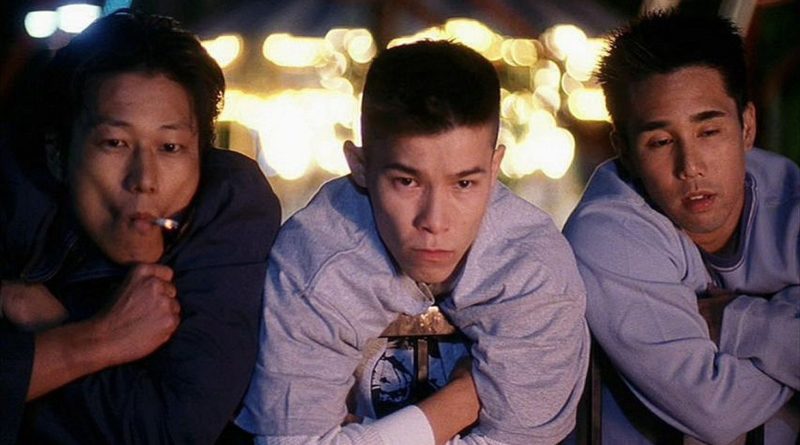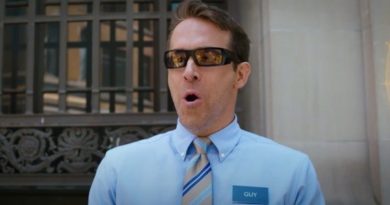Better Luck Tomorrow: Justin Lin’s Asian-American Suburban Mean Streets
I wasn’t sure what to expect from action maestro Justin Lin’s first solo directing feature Better Luck Tomorrow – I had heard about it, read a synopsis on it, and even seen a few screenshots on it. Actually experiencing the movie for myself
was quite an exciting experience.
The easiest way to describe the movie is an Asian American Suburban Mean Streets, meant in the most generous and best way possible. The film focuses on Ben Manibag, a high-achieving high school Asian American junior who stumbles into the world of crime, starting with small, petty offenses that gradually snowball into something much bigger. The movie borrows equally from the cultural revolution of independent cinema from the 1980’s and 1990’s, crime epic, and high school drama, borrowing enough references and influences to mix together into a very compelling narrative.
The movie will be fun to watch for fans of Asian American cinema as it presents a very good slice-of-life of living as an Asian American. What’s most interesting is that a lot of the material covered in the movie, especially about trying to break out of the “model minority” stereotype, still apply today. The obsessive nature of wondering why these characters are striving so hard to do well in school for what will seldom amount to anything post-college admissions is a very real tension, and it ends up being what drives the main characters to do what they do.
The characters themselves are also drawn very well throughout the picture. The main character, Ben (Parry Shen) – who also narrates throughout – strikes a good balance between innocent, driven, shy, engaging, and charismatic that you need. Right from the beginning, Lin creates a character that the audience can root for and relate to, whether they’ve been in the situation of trying to break out of being the token minority or just try to prove themselves worthy. Jason Tobin is effortless as the unhinged, volatile, insecure Virgil, both pathetic and explosive all at the same time. He echoes a lot of the insanity that Johnny Boy brought to Mean Streets, just much more pathetic looking. Roger Fan does a fantastic job as Daric, the cocky, overconfident ring leader who drives the plot forward and is the snake in the garden of Eden. John Cho has a nice turn as Steve, the charismatic jerk-boyfriend to Karin Anna Cheung’s Stephanie (the love interest, exceedingly charming yet very emotionally dynamic). His cool demeanor hides his insecurity and superiority complex. Sung Kang makes his first (of many) appearances as Han Lue, cool and calm and fiercely loyal.
I always like looking at a filmmaker’s first movie (first solo narrative movie in the case of Justin Lin) and see where they got their start, specifically what kinds of techniques, motifs, and influences they bring to their movie. Better Luck Tomorrow is a bit of a mixed bag in this regard: the filmmaking is somewhat uneven, split between shots that are statically composed entrance-and-exit shots, sometimes with some very pedestrian over-the-shoulder shots to cut away from dialogue. These shots are not dynamic by any means, shot as though they didn’t have enough time to film what they needed so they had to shoot it quickly.
This is directly contrasted by some amazing sequences where sped up footage and slow motion footage are combined together to create evocative moments that mix perfectly with voice over. Two stand-out moments are when Han is beating Virgil in an alleyway – the shot mixes slow-motion and sped-up footage with intense music and dramatic voice-over from Ben to punctuate the moment. There is a long take where a simple conversation between Daric and a jock escalates into a brawl where a gun is drawn and a message is left. In a signature moment for the film, getting high and hitting the batting cages becomes an impressionistic montage that combines slow motion, fast motion, dramatic camera movement time-lapsed with voice over musing philosophically about the purpose of why we work so hard in school and what it all means. These moments of intense filmmaking are a reward for some of the more pedestrian filmmaking in the movie – pedestrian filmmaking that Justin Lin was able to work out of his system as he developed in the studio system.
The movie is also paced exceptionally well. The movie crams a lot of character development, plot, and events into a pretty tight 100-minute run-time. The movie starts in medias res, then shoves you back four months later, constantly anticipating when the past will come up to the present. The escalating life of crime that the characters commit happens at a pitch perfect rate, the development of characters and secrets revealed all at excellent moments. From start to finish the picture is engaging. It even handles a few very dark and emotional turns at the end of the movie with a superb hand.
If you have not seen this movie, it is a definite watch, even more so if you have any interest in the careers this movie helped to jump-start. It is the kind of film that makes you want to make a movie – and I mean that with the highest regards.
Rating: Shiny and Chrome.




